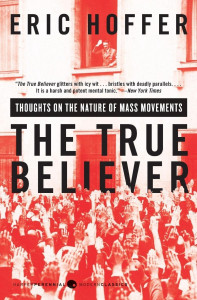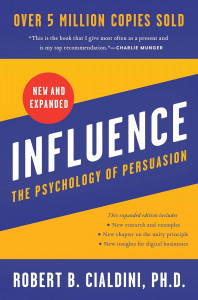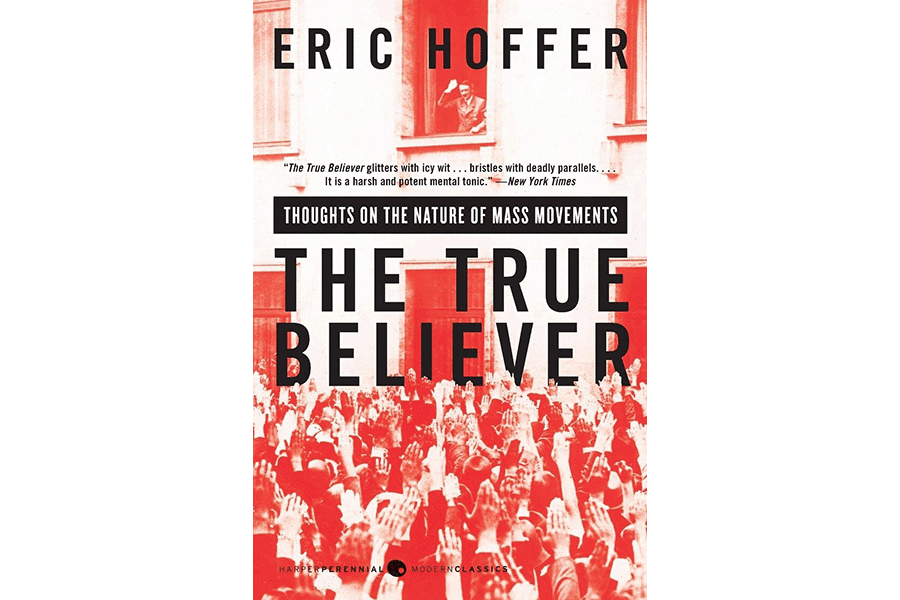Listen to the podcast above, watch the video, or read the script below.
Dennis Collins: Hello, everybody. Welcome back to Connect and Convert, the sales accelerator podcast where small business owners get insider tips to grow their sales faster than ever. This is Dennis Collins here, and you know my partner. Hey, Leah, are you there?
Leah Bumphrey: I am here and it’s spring in Canada. We’re excited.
Dennis Collins: Thankfully it’s spring in Canada. No more snow, huh?
Leah Bumphrey: I didn’t say that.
Dennis Collins: Oh, okay. I know that’s a little premature, right? Anyway, we had such a lovely interview with one of our fellow Wizard of Ads partners, Jack Heald, in our last episode, and he’s graciously agreed to do another episode. So, hey, I’m glad he’s game, but let me reintroduce a true gentleman in a top hat. And I hope you were listening to the last episode to hear the story of the hat because we’re not going to tell it again. Jack Heald, welcome back.
Jack Heald: Thank you guys, it’s good to be here.
Dennis Collins: Good to see you. When we left we were in a very lovely discussion about podcasting and the podcast that you are producing and co-hosting. What is it? Stay Off My Operating Table.
If you don’t know what that is, you’re going to have to go back to the last episode with Jack Heald and you’re going to have to listen to that because it’s, it is absolutely fascinating what he’s doing. But in today’s episode we want to talk about something that’s near and dear to his heart as well.
It’s still a matter of the heart, get the pun. But this is about something that Jack does. It’s called Cult Your Brand. That, Jack, needs a little explanation, I am sure.
 Jack Heald: Cult Your Brand is the name of my company. It is also the name of yet another podcast that I produce. The name came out of an experience I had 32 years ago. I lost my two best friends to a cult. We had spent two years arguing about whether or not we should join the cult. And they did and I didn’t. And I was just pissed.
Jack Heald: Cult Your Brand is the name of my company. It is also the name of yet another podcast that I produce. The name came out of an experience I had 32 years ago. I lost my two best friends to a cult. We had spent two years arguing about whether or not we should join the cult. And they did and I didn’t. And I was just pissed.
Baffled. Why did they do this? What was this all about? And it set me down the road of studying why people make the kinds of decisions they make. And it ultimately led me to a little book called The True Believer by Eric Hoffer. And that kind of unlocked the whole realm of influence and persuasion for me.
That’s what led me ultimately to do what I’m doing today, doing branding and marketing consulting and writing marketing materials for people, and running podcasts. It’s all about influence and persuasion.
Leah Bumphrey: Doing it from a place of being positive instead of using it — it’s not a force, it doesn’t have to be a force for evil or for coercion. It can be a force for information, education, and explanation.
Jack Heald: Yeah. I discovered Robert Cialdini a little ways down the road after I’d started this.
Leah Bumphrey: I’ve never heard of that guy.
Jack Heald: Leah does not practice sarcasm.
Dennis Collins: She has fine-tuned it, Jack. Fine-tuned it.
Jack Heald: I discovered that there are basically five different techniques that cults use to create fanatical loyalty in their followers. But these literally are just tools. They are neither good nor evil. They’re just simply things that you can do and how you choose to use them is what makes it either good or evil. There’s a little bit of overlap with Cialdini’s work and a lot that doesn’t overlap, but that’s where the name came from.
Actually long before I’d ever heard of the Wizard of Ads, I realized what most businesses need. Loyal customers. One of the things that was fascinating to me was that these two friends of mine who joined this cult, the cult made promises, just like a business makes promises.
You give me money, I’ll give you this product or service. The cult made promises and then they didn’t deliver, but my friends stayed. And that’s what really baffled me. Where does this loyalty come from? What is this all about that even after you’ve bought and paid for the product and it fails to do what they told you it would do, you keep going back?
What’s that all about? That’s what led me down the road and that’s how I uncovered these five particular tools and that’s why people continue to come back. It really has very little to do with all the stuff we were told back in the — remember Tom Peters and Search For Excellence.
Dennis Collins: Search Of Excellence. Yes.
Jack Heald: As it turns out, people are loyal to people. I know that doesn’t sound like groundbreaking news.
Leah Bumphrey: That’s a true connection, right? Between people.
Jack Heald: That’s how people are. They’re not loyal to machines. People are not loyal to processes. People are not loyal to programs. People are not loyal to abstractions. People are loyal to people. And I can go on and on.
Dennis Collins: Dare I even ask what is one of the five things that you learned?
Jack Heald: This one is wildly powerful and tremendously unused by most businesses, a face. There’s tons of research that indicates that human beings create emotional connections with faces. We respond emotionally.
The researchers put probes and sensors on bodies and then run all kinds of images past subjects. They found human brains respond to faces in a way that they don’t respond to anything else. One of the reasons that I wear this hat professionally is it makes me recognizable. But if I had the hat without my face, it would not have the same measurable neurochemical trigger in your brain that happens when you see a face. When you see two eyes and a nose or mouth.
So I encourage all my clients visually, whatever your visual representation of your company is, to make sure it’s got a face — always.
Leah Bumphrey: People will try and make a logo into a face. Like, even if it’s not, even if you don’t have someone who’s smiling, even if you don’t have it obvious, you will create a face.
And I can’t remember what that is called but we have that need because we want to connect to something. So if you’re looking at a random wall and there’s a whole bunch of different designs on it you will create a face. It can drive some people absolutely insane, and I know that’s not what you’re talking about Jack, but still isn’t that fascinating?
Jack Heald: Our brains are wired for pattern recognition and one of the patterns that seems to be very deep is recognizing faces. And the fact that so many businesses do not connect a face to their business just staggers me. It’s such an easy win. It’s so simple. You’ve got to do it.
Dennis Collins: Jack, a question. I know in the last episode we talked at some length about your love of writing radio ads. And that is kind of a passion of yours, along with your music. How do you put a face on a radio ad?
Jack Heald: You can’t. This is strictly a visual phenomenon. Radio is audio. The neurochemical responses come through what we see. So that’s not something you can do with radio. There are other things you can do with radio, but most businesses-
Leah Bumphrey: I’m going to challenge you a little bit on that, Jack. I’m going to challenge you a little bit because I’ve been doing the same thing for a bit. And that’s where the theater of the mind comes in. So do you remember that first-grade teacher of yours? Yes. That one that was always bugging you about stuff. Okay. Now you guys are both remembering a different teacher. It may be your first-grade teacher. It may be someone else’s. It may be someone, but by me, I spoke her into your head and you saw her face.
So the theater of the mind gives you the ability to do that. Now it’s not going to be strictly speaking exactly what you’re trying to portray. And I know where you’re going because this is where everything else that a company is doing comes into play. So you’ve got to have — if you’re doing outdoor, if you’re on transit, if you’re doing print or online, you can have an actual face that people will remember when they hear your ad.
But you can’t discount the theatre of the mind for me to be able to remind you of that first gal that you kissed, and both of you remember exactly what she looked like, and whether you closed your eyes. I don’t. You guys have a vision. So, anyways, you were saying, Jack.
Jack Heald: I’m sorry. Where are we now?
Leah Bumphrey: I’ve got you guys both speechless here.
Dennis Collins: I’m just trying to be polite. I was going to say, back in my radio days, the radio dramas were on at night. When I was running radio stations down in Miami, we actually carried that on one of our stations at night.
And man, that was tune-in radio for me. Because you talk about painting pictures like Leah was saying, man, I mean, it reminded you… I didn’t live in the 30s and 40s when radio dramas were all they had. I wasn’t there, but —
Leah Bumphrey: You’re serving that up to us, Dennis, but we’re not taking a shot at that.
Dennis Collins: Very smart, very wise.
Leah Bumphrey: I’m going to be out of a podcast pretty quick.
 Dennis Collins: But we always used to kid and talk about faces on radio when we’d hire a new radio personality. And the joke was, yeah, you have a face for radio. Yeah! They didn’t like that. There are some people that have a face for radio, for sure. So, this whole interest in a cult, and I think you make a great point, we’re both followers of Cialdini. And Cialdini makes it very clear that, in fact, his first book, Influence, was written not so much for the advertising and marketing people, but it was written to warn the public, the general public, about the dangers of unethical uses of the principles of influence.
Dennis Collins: But we always used to kid and talk about faces on radio when we’d hire a new radio personality. And the joke was, yeah, you have a face for radio. Yeah! They didn’t like that. There are some people that have a face for radio, for sure. So, this whole interest in a cult, and I think you make a great point, we’re both followers of Cialdini. And Cialdini makes it very clear that, in fact, his first book, Influence, was written not so much for the advertising and marketing people, but it was written to warn the public, the general public, about the dangers of unethical uses of the principles of influence.
That’s why he wrote it. And, of course, marketing people grabbed it and said, wait a minute! This can be used for the good as well. This is good stuff. And so that’s how, back in the ’80s, that’s how his whole reputation got started. But it was not intended to be a marketing book. It was a consumer book to warn consumers about unethical use of influence. And unfortunately, that’s what the cults do.
Dennis Collins: Jack, we’re going to have to get you back on once you get your book written because I’m sure there’s a book in there somewhere.
Jack Heald: Yeah. It’s about probably 80,000 words and completely disorganized at the moment.
Leah Bumphrey: We get the first interview. That is our claim to fame. We like to interview our authors.
Jack Heald: Yes. That’s a legitimate request.
Leah Bumphrey: Notice how he said nothing there, Dennis.
Dennis Collins: He said nothing.
Jack Heald: I gotta get the book finished.
Dennis Collins: I do as always. It’s, it’s just a pleasure. Yeah, for sure. It’s been a sheer pleasure hearing your stories. We could go on and on, but again, unfortunately, time has elapsed for this edition of Connected Convert. I hope that if you missed the first session with Jack Heel, you’ll go back and pick that up.
And this gentleman is somebody worth listening to on his podcast Stay Off My Operating Table and Cult Your Brand. Those are two places you can hear Jack live and in person. And we appreciate your time as always. Thank you for coming back a second time. We’ll see you at the next Wizard of Ads partner meeting.
Leah Bumphrey: Absolutely.
Dennis Collins: That’s it all for this session of Connect and Convert. Bye for now we’ll see you next week.
- AI Won’t Take Your Job (But Someone Using It Will) - November 3, 2025
- I Think I Swallowed An Elephant – The Author’s Story - October 14, 2025
- The Hard Truth About Workplace Performance Standards - October 6, 2025

